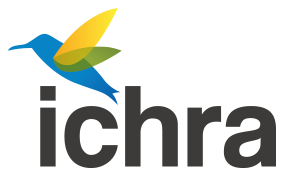ICHRA BENEFITS
The advantages to your business, organization, AND your employees
are worth a look.
ICHRA provides several advantages when compared to the “traditional” group health insurance plan that many businesses have used in the past.

FLEXIBILITY
First and foremost, ICHRA provides a new level of flexibility to employers of all sizes. Businesses choose the level of contribution they want to provide (how much or little) without any caps. They can also choose who they offer ICHRA to, and how much they will offer based on different employee classes. ICHRA also allows employers to provide this new benefit without restrictions on the size of the business, leveling the playing field in a new way.

ATTRACTION / RETENTION
In an increasingly competitive work environment, offering benefits is a gamechanger. In the past, providing benefits was costly was directly tied to a “one-size-fits-all” group insurance plan that had a major flaw…. it didn’t fit anyone all that well. The reality is, each of your employees brings their own unique needs to the table, whether they’re considering their family or their own personal health requirements. ICHRA allows employees the choice to select the plans and benefits that really do fit them well. As well, it gives employers the ability to offer ICHRA to their most valuable staff, improving attraction, retention, and engagement.

CONTROLLED COST / RISKS
One of the main benefits of ICHRA is that it allows employers to control the costs of the benefits they’re providing, AND control their financial risk as well. In an environment where continual year-over-year premium increases are the norm, ICHRA puts employers in a position where they can set their spend amounts once and for all. Now, they can offer as much or as little as they like. Then, working within those predetermined reimbursement limits, employers can pay up to the limit without the concern of increased costs. All of the risk associated with a “bad” claim year or rate increases disappears immediately, protecting your business and the bottom line.

ACA COMPLIANCE
ICHRA does meet IRS compliance mandates, as long as some basic affordability requirements are met. Factors like employee age and geographic area are taken into consideration, as well as their household income to calculate “affordability.” There are certain IRS safe harbors in place to help make these calculations easier for employers to complete, and there is help available if you want to learn more.

TAX EFFICIENCY
From a tax perspective alone, ICHRA comes with many benefits. First, any amounts contributed by employers are not wages, and therefore are not subject to employer matching payroll taxes. Second, amounts contributed by employers are contributions to a health and welfare plan, and therefore are a qualified business expense. Also, amounts contributed by employers are not wages, and therefore do not add to an employee’s gross income, thus making it a tax-free benefit. Finally, any amount owed by the employee above what the employer contributes is eligible for pretax deduction. If an employer offers this option, the whole individual policy can be paid tax free.

ADMINISTRATION
For many businesses, the work it takes to manage their health plan has been a significant burden. ICHRA can be set up and administered internally by the business. That said, if you want to remove the stress of record keeping, managing changing ICHRA requirements, or privacy, then working with an ICHRA administrator will ensure a favorable outcome. An administrator can also help you communicate the new ICHRA platform to employees, and answer their questions as well.
ICHRA is a GAMECHANGER for
businesses and organizations
just like yours.

